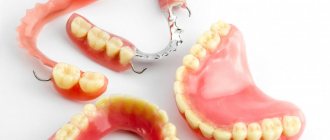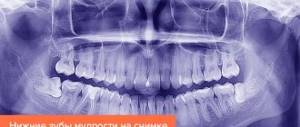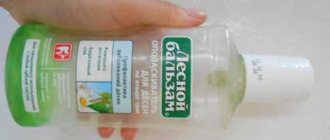Pulpitis in pregnant women
A pregnant woman's teeth are especially susceptible to the negative effects of pathogenic bacteria. This contributes to the more frequent development of caries and pulpitis. There are several reasons why a pregnant woman's teeth are more susceptible to disease:
- The development of pulpitis is promoted by saliva, the composition of which is influenced by changes in hormonal levels.
- Contact with enamel of vomit during toxicosis. They have a low level of acidity, which leads to thinning of tooth enamel.
- Supplying gums with plenty of blood. The gums become loose and susceptible to the negative influence of bacteria. As a result of inflammation, caries appears, developing into pulpitis.
- A large amount of calcium is required for normal fetal development. The lack of this element in the body of the expectant mother leads to tooth decay.
If pain occurs, you should consult a specialist. The method of treating the disease is determined by the dentist. Delaying treatment can lead to complications and the development of other diseases.
Safe anesthesia for pregnant women
To treat deep caries, pulpitis, and periodontitis, pain relief is necessary. More recently, anesthesia was not possible, and expectant mothers endured severe pain during immediate treatment. However, the strong emotional state of women at this moment led to a malfunction of the central nervous system, metabolism, and other disorders.
Lidocaine and other adrenaline-based drugs are toxic, cause muscle weakness, cramps, lower blood pressure, and provoke the development of allergies. If the concentration of adrenaline is insignificant, then the product can be used.
While carrying a child, pain relief is carried out:
- alfacaine, ubistezin, artifrin based on anticaine;
- ultracaine - safe and non-toxic;
- primacaine with a short half-life.
All medications are used at the local level, that is, to anesthetize the tissues around the tooth and pulp.
The need for treatment of pulpitis
Some women do not know whether they should have dental treatment during pregnancy, or whether the procedure should be postponed until postpartum. Pulpitis must be treated when it appears. Several reasons requiring immediate treatment of the disease:
- Pulpitis is inflammation of the neurovascular bundle of the tooth. Untimely treatment leads to the absorption of bacteria into the blood of the expectant mother. This can lead to fetal developmental disorders.
- Presence of acute throbbing pain. Promotes the production of large amounts of hormones. This negatively affects the development of the child. Severe toothache can lead to uterine contractions and premature birth.
- Infection in the gastrointestinal tract. Infections that enter the gastrointestinal tract from the tooth can lead to late toxicosis.
Taking into account the above factors, a pregnant woman should immediately consult a dentist if symptoms of pulpitis appear.
First aid for acute toothache. How to relieve pain at home?
- For completely unbearable toothache, you can take painkillers. The safest medications during pregnancy are those containing paracetamol.
- Clean the carious cavity, rinse your mouth with a warm solution, which contains: 1/2 teaspoon of baking soda, 1/2 teaspoon of salt and a few drops of iodine.
- You can use dental drops (Denta or others) by applying a swab soaked in them to the gum.
- Attacks of pain are reduced by rinsing the mouth with herbs: a decoction of calendula, chamomile, valerian, St. John's wort, plantain.
- A very ancient and effective remedy is applying garlic to a sore tooth. You can also apply crushed garlic to the pulsating vein on the wrist (to the left hand for tooth pain on the right side and to the right hand if the tooth hurts on the left side).
- Never apply warm compresses to a sore spot.
Important! The listed methods are temporary - they will only slightly reduce toothache, but will not cure pulpitis! So don't put off visiting the dentist!
How long does it take to treat pulpitis?
Treatment of pulp inflammation has features depending on the stage of pregnancy. The expectant mother needs to inform the dentist about her situation and the stage of pregnancy. The specialist will select medications that will not harm the baby’s health for a certain period of time.
First trimester (from the moment of conception to the 12th week inclusive)
Treatment of pulpitis in pregnant women in the first trimester is not recommended. During this period, the fetus experiences increased sensitivity to toxins. The use of even the safest anesthesia can provoke developmental disorders.
The need for treatment is determined by the dentist. Treatment of chronic pulpitis is postponed to a later date. In the first trimester, the disease is treated during exacerbation.
Second trimester (from week 13 to week 28 inclusive)
At this time, the likelihood of harm to the fetus during dental treatment is reduced. The second trimester is the most favorable period for the treatment of pulpitis during pregnancy. The doctor performs the treatment under local anesthesia. Drugs are used that have a minimal amount of vasoconstrictor substances and do not penetrate the placenta. Such medications do not harm the baby.
Third trimester (from 29 weeks until birth)
The presence of acute toothache in a pregnant woman in the later stages can lead to premature birth. In the third trimester, treatment of pulpitis is necessary. Before visiting the dentist, you should consult with a gynecologist accompanying your pregnancy.
Features of the fight against pulpitis during pregnancy
It is believed that the ideal period for treating the disease is the second trimester. In the first twelve obstetric weeks, if possible, any external interventions should be avoided, as all the internal organs of the child are formed. Starting from 13-14 weeks, you can safely engage in dental treatment.
That is why, at the planning stage for a child, you should visit a dentist and undergo an examination. This simple measure is guaranteed to avoid unpleasant surprises in the first months of pregnancy. But, if pulpitis occurs before the 13th week, you should not hesitate. You just need to warn the dentist about the “interesting situation.”
Taking into account the woman's pain sensitivity threshold, the dentist may suggest therapy without the use of anesthetics. But for severe pain, safe painkillers with minimal side effects must be used.
- First, the doctor cleans the cavity and puts medicine into it.
- A few days later the patient comes back for an appointment. The medicinal composition is extracted and the canals are cleaned.
- Safe temporary compounds are placed in the cleaned canals. Cover the hole with a temporary filling.
- The replacement of used materials with permanent ones is carried out after childbirth.
If you cannot do without an x-ray, it is better to replace it with radiovisiography. This technology is much more secure, but no less informative. With its help, you can check the condition of the canals and study the quality of the filling performed.
If a woman is allergic to any medications, analgesics, or dental materials, she must notify the doctor about this. Then the therapy will be tailored to the characteristics of her body.
Stages of treatment
Treatment of pulpitis is carried out in one or several visits to the doctor. Treatment is carried out in several stages:
- Diagnostics. The doctor conducts a survey and examination of the pregnant woman’s oral cavity.
- Introduction of anesthesia. The drugs used are safe for the fetus.
- Removal of the part of the tooth affected by caries.
- Pulp removal. A pulp extractor is used - a rod with spikes that engage the tissue.
- Cleaning of channels and their mechanical treatment.
- Installation of a seal. The root canals and crown part of the tooth are filled.
- Checking the filling of the canals using radiography.
In some cases, treatment is carried out in 2–3 visits to the doctor. For the period between appointments, the doctor installs a temporary filling. It protects the tooth cavity from food and pathogenic bacteria.
How to avoid pulpitis during pregnancy
To reduce the likelihood of developing the disease during pregnancy, you need to:
Get examined at your dentist's office while preparing for pregnancy and in the first weeks after conception.- Visit the dentist promptly as prescribed by the gynecologist.
- Eat right, eat less sweets.
- Carefully monitor oral hygiene.
- Eat more fresh fruits and vegetables. They contribute to the natural cleansing of dental crowns from soft plaque.
- Use high-quality toothpaste and brush.
- Take prenatal vitamins prescribed by your gynecologist.
Use of radiography
Treatment of pulpitis involves the use of x-rays. They are necessary for the dentist for diagnostics, high-quality cleaning of root canals from inflamed pulp and control over the quality of the work performed.
The dentist must take into account the individual characteristics of each patient’s teeth. To determine the depth, location and curvature of the root canals, the specialist needs to send the expectant mother for an x-ray. This will allow him to get a more detailed picture and correctly treat pulpitis.
Radiography during dental treatment does not harm the health of the fetus. The rays pass through the tissue in the tooth area. A specialized apron that does not transmit x-ray radiation is put on a pregnant woman's stomach. This makes the procedure safe for the baby.
Treatment of pulpitis during pregnancy is necessary. The presence of the disease can negatively affect the fetus. A timely visit to the dentist will help avoid complications and the development of other diseases.
Removal and prosthetics of teeth
In most cases, tooth extraction can be postponed until after the baby is born to save the woman from unnecessary anxiety before the procedure.
However, if the tooth is severely damaged (for example, with advanced caries) or inflammation, tooth extraction is permissible. The procedure is performed under anesthesia and is considered quite safe for mother and child. After tooth extraction, it is important to follow the doctor’s recommendations: do not overheat or overcool the damaged area.
Prosthetics can be performed during pregnancy in the absence of medical contraindications and the desire of the expectant mother.
But, as a rule, many women prefer to postpone prosthetics for the future - after the birth of the baby, in order to avoid anxiety. When visiting a doctor, pregnant women are advised to take the correct body position: not lying on their back, but slightly turning to their left side.
This will relieve fetal pressure on the aorta. Pregnancy is a period of particularly strong stress on women’s health. You should pay special attention to dental care at this time. Against the background of general exhaustion of the body, it is necessary to regularly replenish the reserves of vitamins and minerals, on which the condition of the teeth depends. We must not forget about regular brushing of teeth in the morning and evening. You should avoid flavored toothpastes so as not to provoke toxicosis, which increases the acidity of saliva and destroys tooth enamel.
Quantity
Symptoms
Pulpitis develops acutely, causing a sharp deterioration in health. Main symptoms:
- sharp, “pulsating” pain (often occurs at night);
- tooth sensitivity after filling to cold, hot or sour foods;
- temperature rise sometimes up to 38 C and above.
Developing serous inflammation and swelling, constant pain cause emotional stress. This can lead to the release of certain hormones, which is dangerous for the baby.
When a nerve is damaged, the pain is aching, may subside and reappear.











